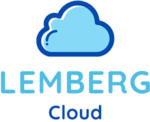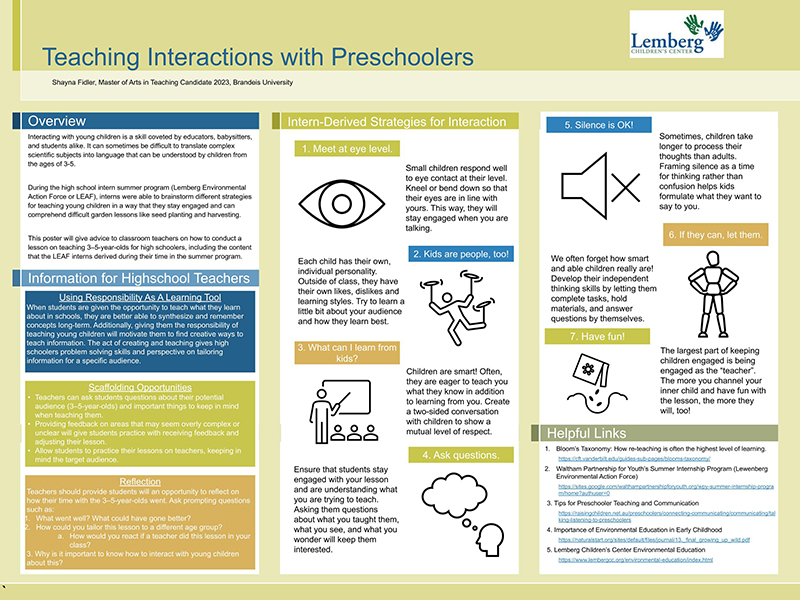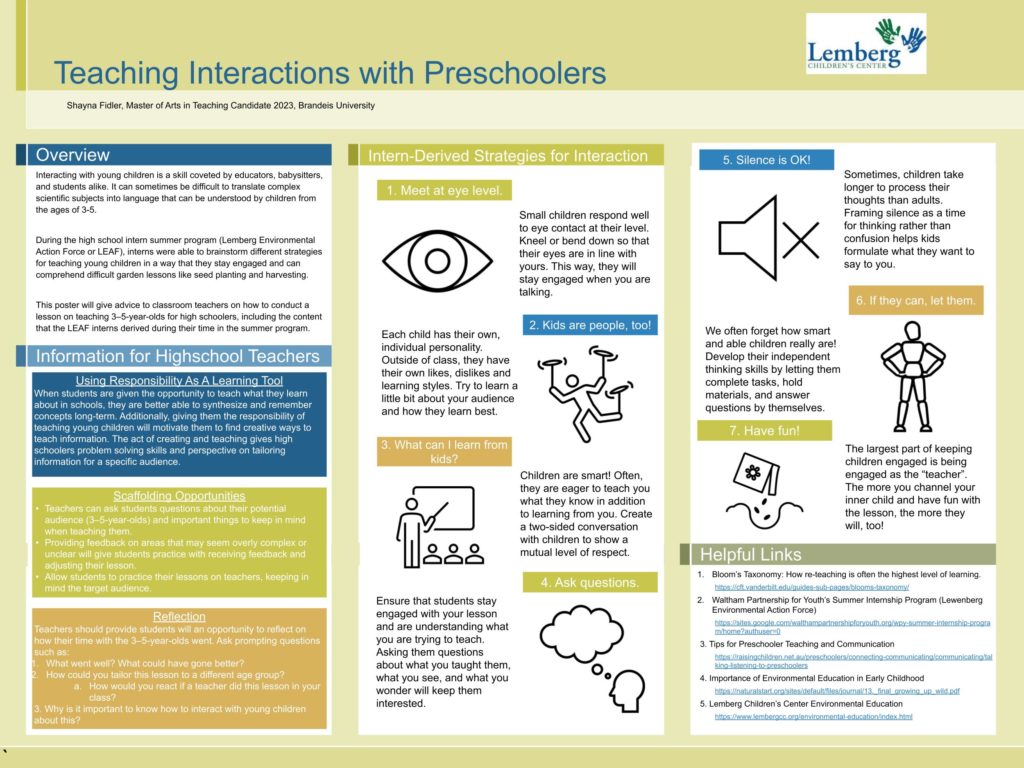When I found out I would be the only science teacher in my Brandeis Master of Arts in Teaching (MAT) cohort, I was intimidated. I was worried there would be nobody able to support me in becoming the best science educator I could be. This all changed when I was introduced to Associate Director of Environmental Education, Sylvia Kohn-Levitt at Lemberg. After spending a week with her, high school chemistry teacher Elyse Hahn, the high school interns for the Lemberg Environmental Action Force (LEAF), and the preschool students, I feel more prepared than ever to enter my first year as a student teacher.
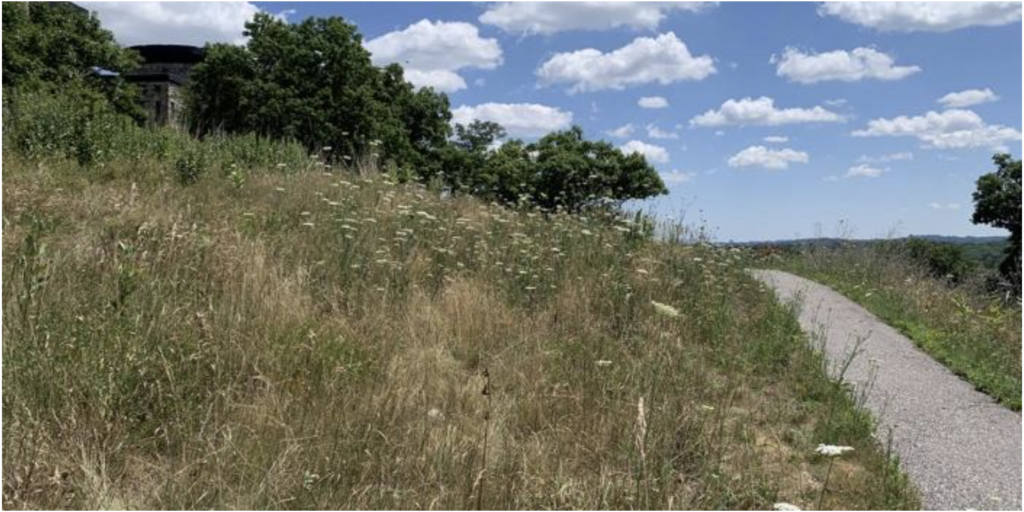
LEAF interns working with Preschoolers in the garden.
LEAF is an initiative created in partnership with the Waltham Partnership for Youth, a summer internship program for high school students. Throughout this six-week program, students will be able to gain experience in environmental conservation, gardening, and scientific research.
This week, I joined the students in their research at a pollinator garden on the Brandeis campus. In the garden, we used an app, iNaturalist, to catalog insect and plant species found. They also took images every day for the Chronolog, a website that tracks what the garden looks like over time. Students will be able to analyze their data from the six weeks of collection and present their findings at the closing ceremony to take place in mid-August. The students were really interested in planning for their data presentation and took note of which methods of sharing information they enjoyed the most during school. This was helpful for me, because, as an incoming teacher, I am constantly looking for ways to keep students engaged with the material. They opted for an interactive and colorful method of presentation rather than a typical PowerPoint they felt would bore their audience. We also decided to include some form of flier with a QR code to supplemental information that would be hung up around the Environmental Science department of Brandeis. Stay tuned for their presentations to come!
This week, we also had several discussions about how to interact with preschoolers and what strategies we can use to engage them. The interns did a great job of finding ways to involve preschoolers, including asking them questions, complimenting them, meeting the preschoolers at their level, and more. We even got to test out these strategies by conducting a garden lesson with the Voyagers and Navigators on harvesting kale and carrots and planting new seeds in the raised beds. I think the interns had fun being educators for younger kids, and showed that with a little bit of responsibility, they can really make an impact on the environmental education of the next generation. Looking for non-traditional ways of synthesizing knowledge, such as community engagement and field research, as part of a high school biology class would teach students why their work in school actually matters.
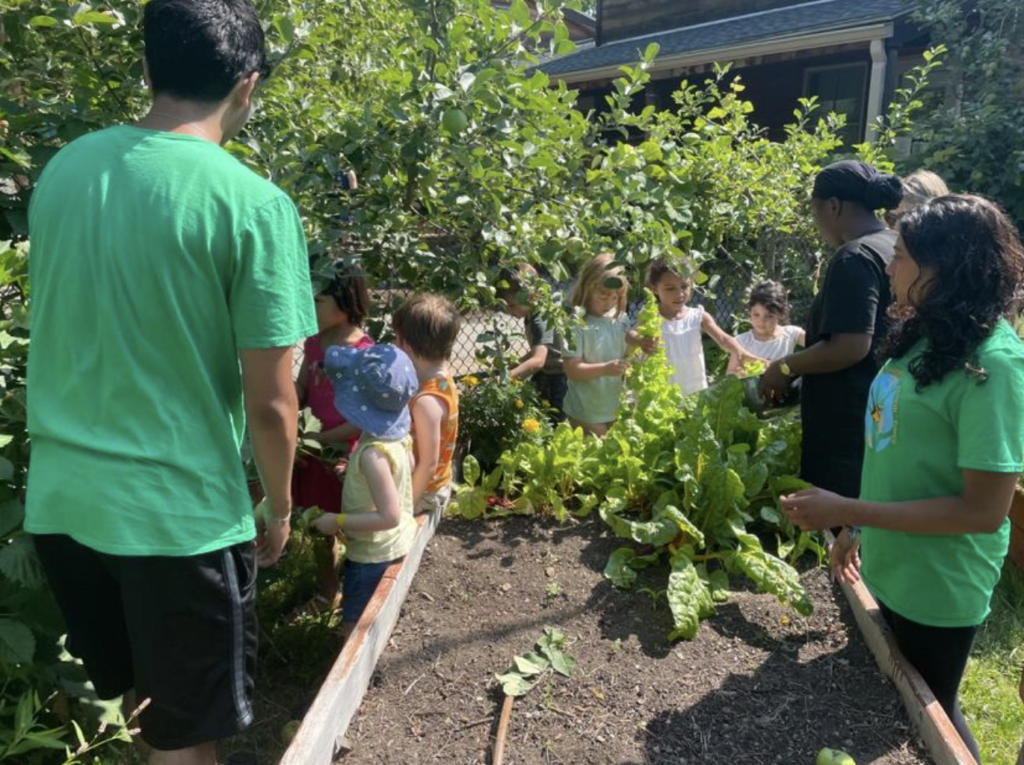
LEAF interns working with Preschoolers in the garden.
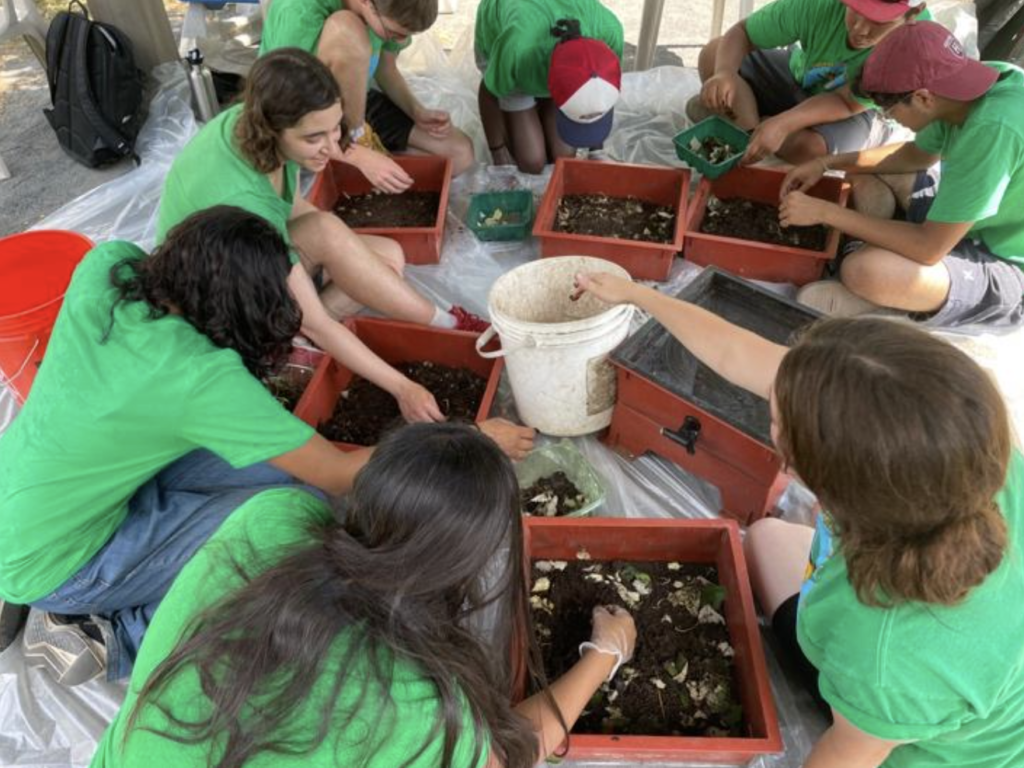
We also got a chance to apply more complicated concepts to typical garden tasks. Lemberg does a yearly cleaning of their worm bin, so we used this as an opportunity to learn about the nitrogen cycle and the importance of vermiculture on garden health. Although some of the interns were not the most enthusiastic about dealing with worm castings, they were interested in how their actions would help the garden.
Picture: Cleaning the worm bin and collecting the castings to make fertilizer for the garden.
It is also important to think about the interconnectedness of environmental education and social justice. I was able to facilitate a discussion with the interns about old-growth forest and land ownership. The interns were very surprised to learn that our forests have been clear cut twice in recent history: once during the agricultural transformation of our country, and again during the industrial revolution to make room for factories. We dove into the reasons they may not have learned about the forests when learning about these topics in history class. Even further than that, we discussed the implications of owning land, answering questions about what that may mean for people that cannot afford to own land and what different benefits and drawbacks to private land ownership exist today. Increasingly in schooling, it has become impossible to teach a biology class without bringing up issues of environmental justice and issues that are debated on a national scale. Initiating conversations with students in a more casual setting, such as during this program, helps to prepare them for formal discussions they may have in school [link to newsletter further explaining this]. It also motivates them to think about these issues on their own time and work to formulate their own opinions.
My experience at Lemberg has been one I will not soon forget. Interacting with the high school interns provided me with valuable insight on what keeps them engaged and what they care about going into this school year. I learned about strategies for asking engaging questions to initiate conversations, qualities students look for in a good teacher, and which kinds of activities high schoolers are interested in the most. I was also able to nourish my inner child by teaching the preschoolers all about the garden and picking blackberries for them whenever they asked (trust me, they asked a lot!).
Thank you so much to the Brandeis MAT program, the Waltham Partnership for Youth, Lemberg, Sylvia, and Elyse for this amazing experience! I wish all the interns luck in their coming school year and hope they continue to be interested in environmental science and education.
Shayna Fidler is a student in the Brandeis Master of Arts in Teaching program at Brandeis University. She graduated in 2020 from the University of Rhode Island with her degree in Environmental and Natural Resource Economics. Shayna will be student-teaching high school biology this fall. She loves hiking, yoga, and anything outside!
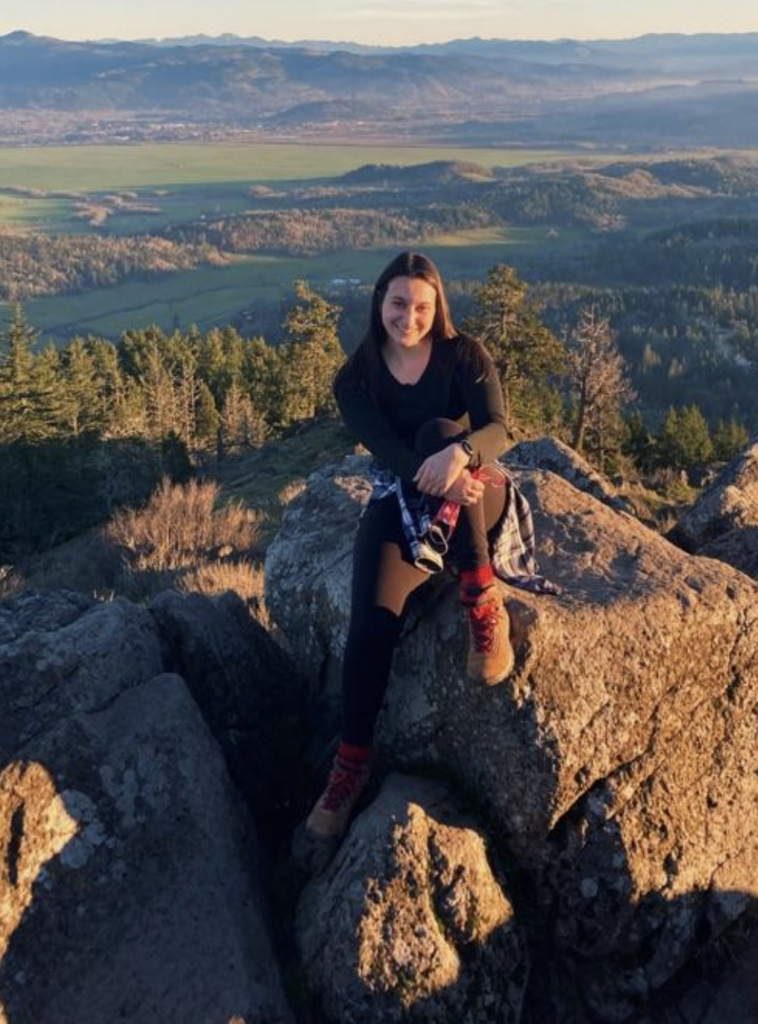
Shayna Fidler
